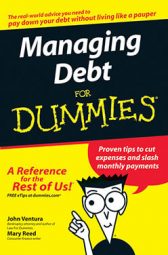The federal Truth in Lending Act makes it easy to compare credit card offers, because it requires credit card companies to provide written information about the credit card terms. Do a comparison of credit cards fees, rates, APRs, and balance calculation methods before you accept even a preapproved credit card.
 © Avery Evans / Unsplash.com
© Avery Evans / Unsplash.comHere are some of the terms of credit that creditors must provide:
-
Annual percentage rate (APR): This is the cost of the credit expressed as an annual rate. Pay close attention to a card’s default APR — the rate you end up paying if you make a payment late (or pay some other creditor late), you exceed your credit limit, or your credit score drops below a certain amount. Your APR could triple depending on the terms of the credit offer!
-
Balance calculation method: When you carry a balance on your credit card, the credit card company figures out how much interest to add to that balance by using one of several different methods. Some methods cost you more in interest than others. The least expensive balance calculation methods are adjusted balance and average daily balance excluding new purchases. The most expensive are two-cycle average daily balance including new purchases and two-cycle average daily balance excluding new purchases.
-
Fees: Credit card fees can be really costly, so look for cards that have few and low fees. Examples of common fees include an annual or membership fee, a late fee, a bounced check fee, a fee for exceeding your credit card limit, and a balance transfer fee. Believe it or not, some cards charge you a fee every time you use them or because you don’t use them often enough!
-
Grace period: This is the amount of time you have to pay the full amount of your card balance after the end of the last billing cycle before you’re charged interest on the balance. The longer the grace period, the better; a 25-day grace period is probably the best you’ll do. Some cards have no grace period; avoid them if you expect to carry a balance on your credit card.
-
Periodic rate: This is the rate of interest you’re charged each day on your card’s outstanding balance. If you expect that you may carry a balance on your credit card, get the lowest rate you can. The rate may be fixed or variable, but even a fixed rate isn’t truly fixed because a creditor can raise it at any time after it gives you 15 days notice. Also, pay attention to the interest rates that apply to balance transfers, cash advances, and other transactions you may make with a credit card. These rates won’t be the same as the periodic rate.

